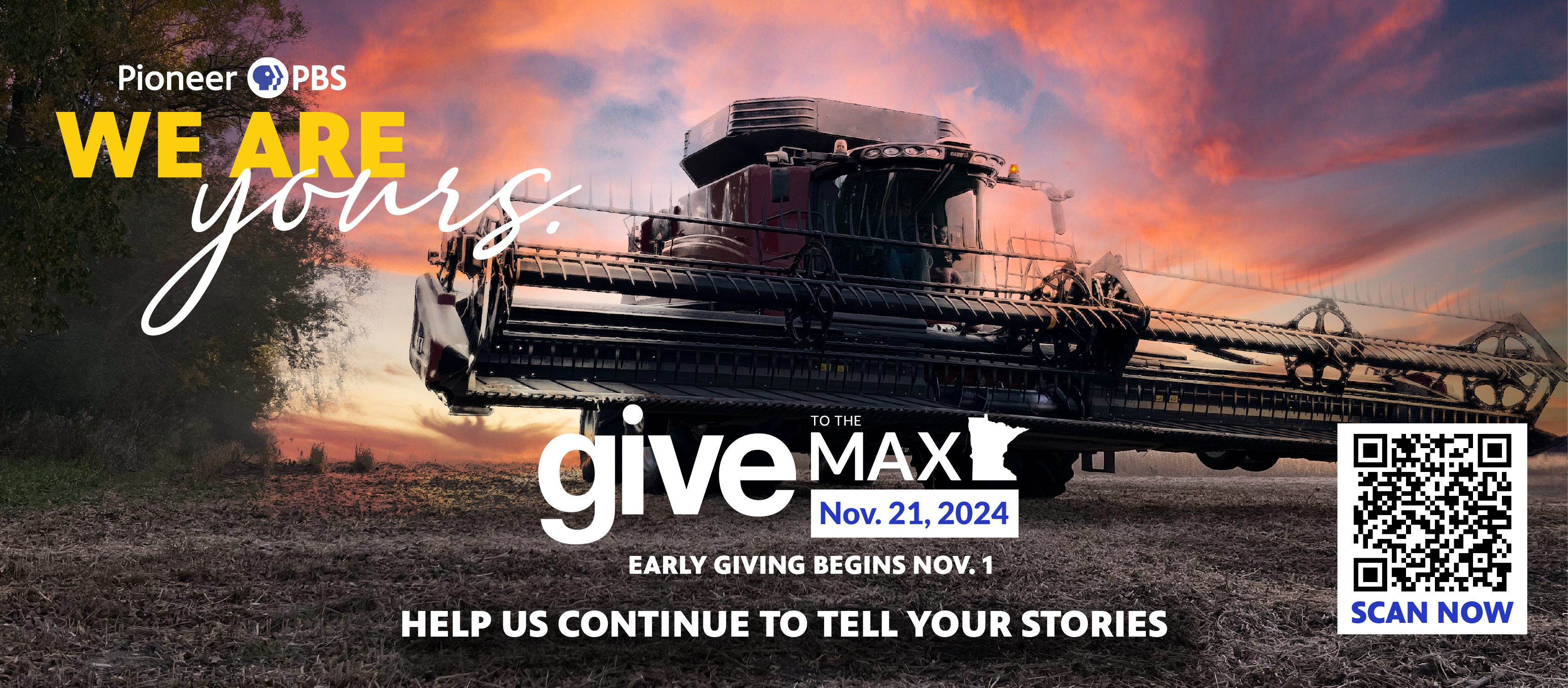
Native Stories:
View this collection of stories throughout the Pioneer PBS viewing area. Each individual story is worth a watch. If you know a good story, please let us know.
If you like what you see, watch more Pioneer PBS videos here: https://video.pioneer.org/
Raine Cloud has spent most of her life studying and creating beadwork.
Karina Kafka created a film called “A Mother’s Love" about missing indigenous women.
The American Swedish Institute & All My Relations Arts present an art exhibit.
Wicanhpi Iyotan Win (Autumn Cavender) talks about the legacy of artist Oscar Howe.
“Grasshopper Girl” is a children’s book that Peterson wrote from her own family stories.
Inkpa Mani of Wheaton paints and sculpts art that reflects his heritage.
Priscilla Gruendemann made and gifted regalia for her Ignite Rural Artists project.
Beth O'Keefe studied & made a Dakota women's dress for her Ignite Rural Artists project
Award-winning filmmaker Leya Hale traces the traditions underlying the dress-making.
This program was made possible by the voters of Minnesota through legislative appropriation from the arts and cultural heritage fund.
Fern Cloud is a Native American designer and Dakota hide painter.
Fern Cloud / Akipawin reflects through art on how COVID-19 has impacted her communities.
An occasional series of short videos exploring the meaning behind Dakota Place Names.
Talon Cavender-Wilson on the resonance of sound and COVID-19.
"Quilting is something that we need to keep alive because there are quilters in both of the communities and bringing us together through it is a great way to share experiences, history and knowledge."
Walter ”Super” Labatte Jr. of the Pejuhutazizi Kapi (the place where they dig for yellow medicine) has become known in native circles for his traditional process of tanning deer hides, making beaded moccasins, drums and his pasdayapi (corn soup). Postcards tells the story of how he overcame alcohol addiction and found purpose in life through learning and mastering traditional Dakota crafts.
Walter “Super” LaBatte Jr. narrates a family story of the naming of Maya Bdeg'a.
*Upper Midwest Emmy
Talon Wilson shares the story of how he has ended up learning folk arts in Sweden.
Dawn Schommer Chase brought in her latest beadwork to show students at ECHO Charter School for Dakota Day. Take a peek at what we got to see.
We visited ECHO Charter School for Dakota Day and got to know more about working with pipestone from Tim Blue.
ECHO Charter School recently received a surprise $1 million donation. We visited the school for Dakota Day and talked with director Helen Blue-Redner about how she plans to use the gracious donation to fund more events like Dakota Day.
Learn about the healing power of horses with Dakota Wicohan.
A glimpse into the Cansayapi Makaćhèga resurgence.
YME Native American students participated in a statewide language competition.
A quill working revival.
Linda Black Elk shows us a few different elixirs, and remedies we can make at home.
*Upper Midwest Emmy
The path of Native people, their horse relatives and cultural revitilization.
Backing up Opie Day is his wife Desirae Desnomie, backup singer for Midnite Express, from Peepeekisis Cree Nation in southern Saskatchewan. Gain an understanding of what singing means to Desirae in this installment of the Undowanpi series.
We're excited to finally release our digital project, Undowanpi (We Sing)! Throughout this series of four videos you'll get an understanding of what traditional song and drum means to four different Native artists.
First we hear from Hoksida Blacklance from Pezihutazizi Oyate (Upper Sioux Community) in Granite Falls. Hoksida is a lead singer of Midnite Express.
The next part of the Undowanpi series features Gabriel Desrosiers, lead singer of Northern Wind, from Northwest Angle 33 First Nation. Learn how song has changed Gabriel's life and the importance it plays in his role as a teacher at the University of Minnesota, Morris.
As a part of the series Undowanpi (We Sing), this next video features Opie Day, lead singer of Midnite Express, from Bois Forte Band of Chippewa.
Walter "Super" Labatte gives an overview of how to make traditional buckskin.
114 acres of land was returned to the Cansayapi community by the state of Minnesota.
Dakota Wicohan in Morton aims to transmit Dakota lifeways to future generations. Pioneer PBS’s Tanner Peterson visited Dakota Wicohan to learn about their youth regalia class.
A one-of-a-kind collaboration is taking place between Minnesota West, the Cansayapi Lower Sioux Indian Community and the Southwest Minnesota Private Industry Council. The Cansayapi community recently identified construction trades as a needed educational pathway in the community. The first class in the Cankuya construction trades program just graduated!


